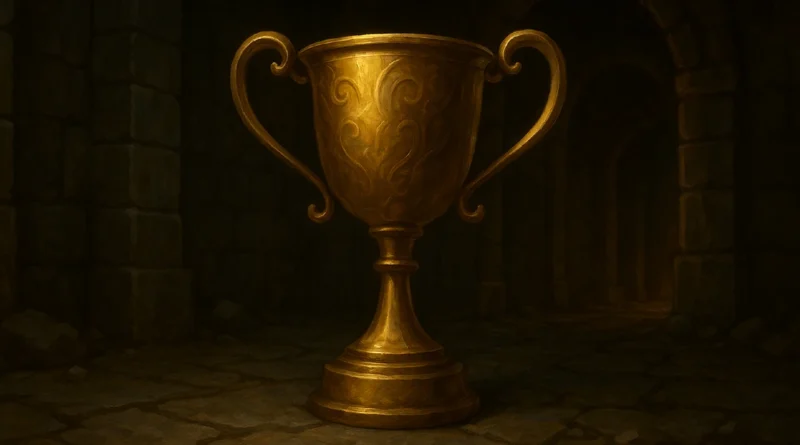How To Win Commander Games – Lessons I’ve Learn From The Table
When I first started playing Commander, I didn’t win a single game for months. Not even close. Although I had a fairly good win rate on Arena, the switch to playing in a four-person pod felt like a whole different game. And, even though the cards you’re playing are the same, in a lot of ways, it is.
I’ve played a fair bit of Commander over the past few years, and I’ve picked up a few little tricks that have improved my chances of winning. These aren’t magic formulas that will win you every single game. However, they are simple tips that will definitely put you back in the running. If you’re frustrated with feeling ineffective in your pod, and are wondering how to win Commander games more regularly, here are some basic principles to follow.
Lesson 1: Tuning Your Commander Deck For Success
An obvious starting point when trying to win more Commander games is taking a good hard look at your deck. Now, I’m not suggesting that you need a crazy-strong deck, packed with cards that cost hundreds of dollars. You don’t. All you need is a solid strategy with cards that feed into it.
If you’re using a preconstructed Commander deck, you’re probably already in pretty good shape on this front. I regularly play with a minimally upgraded Veloci-ramptor precon that has won me multiple games, even against some objectively strong decks. Wizards of the Coast pack a lot of value into their precons and build them so they’re relatively competitive right out of the box – particularly more recent decks. With that said, there is always the odd duff card that doesn’t quite fit or is underpowered, but you can upgrade these once you’ve got a feel for how the deck runs.
However, if you’ve built your own deck from scratch, there may be more room for improvement. Building a Commander deck requires carefully balancing important aspects such as creatures, mana sources, card draw, removal and, most importantly, win conditions. I’ve written a guide on building your first Commander deck which may be useful if you’re new to the format.
The main takeaway here is that while you don’t need a hugely expensive, finely tuned Commander deck, having a janky, strategy-deficient pile of cards is ultimately going to limit your ability to win.
Lesson 2: Stay Ahead… But Not Too Far Ahead
Now we’ve covered the most obvious tip, we can move onto some of the more interesting tricks I’ve picked up over my time playing Commander, starting with this. As somebody who has watched all of about fifteen horse races in my lifetime, I’ve noticed something. The horse that charges out of the gates and is way ahead for the first half of the race is rarely the horse that wins. They run out of steam and are taken over by horses who kept a steadier pace earlier in the race and then ramp it up on the final straight. It’s a weird analogy, but I think there’s a Commander lesson in it.
In a game of EDH, there is a very fine balance you need to strike, particularly early on in the game. You want to be consistently working towards your win conditions, adding value to your board each turn. However, adding too much value can (and almost always will) make you a target.
Consider this – if you drop a turn one Sol Ring, into an Arcane Signet (the classic). Then, on turn two, drop a second land, play a Dark Ritual and cast your six-mana Commander, you’re almost certainly way ahead of the rest of the table. But in being so far ahead, you’ve basically painted a huge red bullseye on your back – until somebody else catches up. Every removal spell in your opponents’ hands has got your name on it. Every creature being swung is coming your way, if possible. It’s not uncommon to see an early ramper ending up the first one out of the game, often through a combined effort of all opponents to remove the biggest threat on the table.
So what’s the solution? Play smart and keep a steady pace until you can make a game-changing impact. This isn’t to say that you should limit yourself entirely in the early game, but even holding off a turn or two to drop a devastating combination of cards can put you in much better stead in the long run. Let somebody else be the target for a while, then swing the board in your favor when the opportunity arises.
Lesson 3: Commander Is A Game of Politics
When you play a two-player format, there’s no room for negotiation. It’s kill or be killed. You take every opportunity to make life as difficult as possible for your opponent. However, this attitude doesn’t translate well in Commander.
There are times when deals need to be struck. Something that happens quite regularly in the pods I play with is that one player may say something like: “I have a solution to this huge threat, but if I deal with it, I’d appreciate it if you didn’t attack me next turn’, or something to that effect. In some cases, one player may do something that deliberately triggers a positive ability for another player, to allow that other player to deal with a mutual threat. In my opinion, the politics are a fundamental mechanic and are what make the format so much fun.

Some Commander decks are built especially to feed into the politics of the table. There are commanders and cards that incentivize players to attack each other and not you, for example. To win games, you need to use politics to your advantage. Even a truce that lasts a single turn can be all you need to get the board in order and gain the upper hand later in the game.
Another important reason to resist the urge to go in all guns blazing comes back to the idea of not making yourself a target. If you’ve used removal spells to take key pieces off all three of your opponents’ boards, they’re not going to think twice about returning the favor at the earliest opportunity. However, instead of just one player gunning for you, you have three. Be diplomatic, fly under the radar and be a political genius.
Lesson 4: Don’t Get Too Comfortable
Commander is an unpredictable format at the best of times. There will be games where winning feels inevitable. You have a strong board, your opponents are on the ropes with low life totals. Then, boom. Across the table, your opponent drops an overloaded Cyclonic Rift. Everything you worked for disappears and your game just got an hour longer (and if you’ve never had this happen to you – lucky you!).
This tip follows on nicely from lesson 2, and the main point here is don’t get complacent. At times, it’s all too easy to think you’ve got it all worked out. You overextend yourself to pile on the pressure, then a boardwipe leaves you with nothing. It’s important to have a backup plan, just in case things take an unexpected turn (and they often do).
Lesson 5: Take The Time To Work Out Your Sequence
When playing in a pod of four (or sometimes more) players, it’s easy to feel pressured to do everything as quickly as possible. And while it’s important to not slow the game down too much, you’re entitled to take a few moments to properly plan your next move.

This is especially crucial when you’re in the final stages of the game and a win is in touching distance. There have been several low points in my time playing Commander where the win was there for me to take, if only I’d taken the time to properly sequence my plays. In one extreme example, I was on the cusp of winning, completely misplayed my cards and ended up dealing enough damage to myself to drop the little health I had left below zero. There’s losing and then there’s LOSING.
Take a minute, properly consider your options and go for it. It’s also worth keeping in mind that the more you play, the better you’ll get at assessing these types of situations and understanding how to get the most out of the cards you have available.
Lesson 6: Sometimes Doing Something Cool Is Better Than Winning
A final lesson I’ve learned from my time playing Commander is this: winning isn’t everything, anyway. Commander is a casual format. In a lot of ways, winning is irrelevant.
Some of my favorite memories of Commander happened in games that I probably didn’t end up winning. They’re times when I’ve done something unexpected or out of the ordinary, things that were just the result of having the right card at the right time against the right opponent. With so many opponents and so many different cards, you never really know what’s around the corner.
For example, somebody in my pod had recently bought themselves an Ancient Copper Dragon that they were excited to hopefully play. In their first game with it in their deck, I milled it into their graveyard, reanimated it with The Scarab God, attacked them with it and made myself a cool 13 treasure tokens. I can’t remember if I won that game, but we still laugh about that play to this day.
Conclusion – Try To Win, But Mostly Just Have Fun With It
At the end of the day, Commander is as much about the stories you tell afterwards as the wins you rack up. Every pod is different, every table has its own politics, and no two games ever play out the same way. That’s what makes the format so addictive – you’re constantly learning, adapting, and occasionally pulling off plays you’ll remember for years.
If you’re struggling to win more often, the best advice I can give is this: focus on getting a little bit better each game. Build a deck with a clear plan, pace yourself, make friends at the table when you can, and don’t take things too seriously when it all falls apart.

